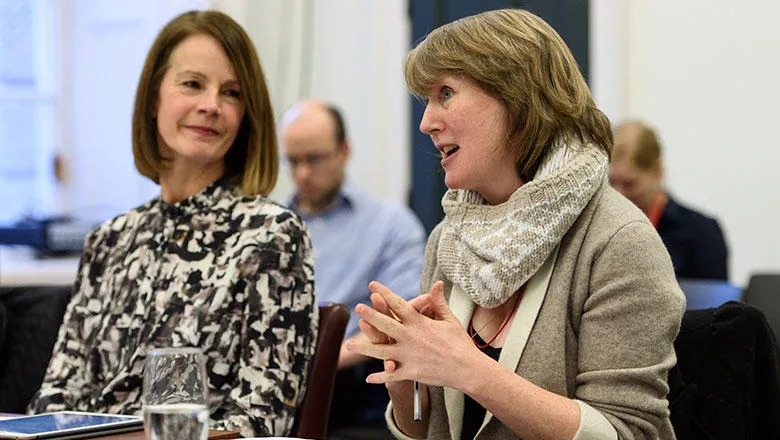We are delighted to see the Commission recommend a stronger sector-wide focus on civic engagement that emphasises the impact universities can have when they work in partnership with their local communities.
Baroness Deborah Bull
12 February 2019
King's supports final report of Civic University Commission
King’s has backed the final report of the UPP Foundation Civic University Commission, which emphasises that universities have the capability, opportunity and responsibility to further support the places where they are based to help solve some of their most pressing problems.

These challenges, says the report, range from helping local business adapt to technological change, to boosting the health of local people, improving education for school pupils and adult learners, and training and developing new civic leaders in every field from politics to the arts.
The Civic University Commission report was based on evidence-gathering sessions held across England, alongside input from civic leaders such as Greater Manchester mayor Andy Burnham, opinion polling and local focus groups in cities and towns.
The London evidence session took place at King’s College London and explored the role universities play in supporting culture, arts and heritage, and how as ‘anchor’ institutions they support their local communities. Session witnesses included Dame Helen Ghosh, formerly Director-General of the National Trust and Master of Balliol College, Oxford and The Rt Hon. Lord David Willetts, former Universities Minister, MP for Havant and Executive Chair of the Resolution Foundation, alongside Professor Ed Byrne AC, Principal of King’s College London, Baroness Deborah Bull, Vice President & Vice-Principal (London) at King’s, and Professor Evelyn Welch FKC, Senior Vice President / Provost (Arts & Sciences) at King’s.
Baroness Deborah Bull emphasised King’s Vision 2029 commitment to its local communities during the evidence session.
Speaking about the report, she said: ‘King’s College London welcomes the final report of the UPP Foundation Civic University Commission and we are pleased to have had the chance to share with the Commission our work over recent years to develop tailored and responsive partnerships with each of King’s three local boroughs. King’s Vision 2029 sets out our ambition to be a civic university at the heart of London, expressed through King’s Civic Charter, which sets out our commitment to London and the communities in which we make our home.'
The UPP Foundation created the commission to explore what it means to be a Civic University in the 21st Century and ask local people what they wanted from their local institution. This research found that communities welcome opportunities to connect with universities, and there is great local pride about how universities ‘put their hometown on the map’. However, the report identified that in areas of lower economic growth, communities were less aware of what their university did locally, felt less engaged and pride was lower.
The report was authored by Lord Kerslake, chair of Sheffield Hallam University, and a former Chief Executive of Sheffield City Council and Permanent Secretary at the Department of Communities and Local Government. He said: ‘Universities have an irreplaceable and unique role in helping their host communities thrive – and their own success is bound up with the success of the places that gave birth to them.’
Richard Brabner, director of the UPP Foundation, added: ‘Universities have the ability to make a real difference to the places they are located in through reinvigorating their civic role.’
